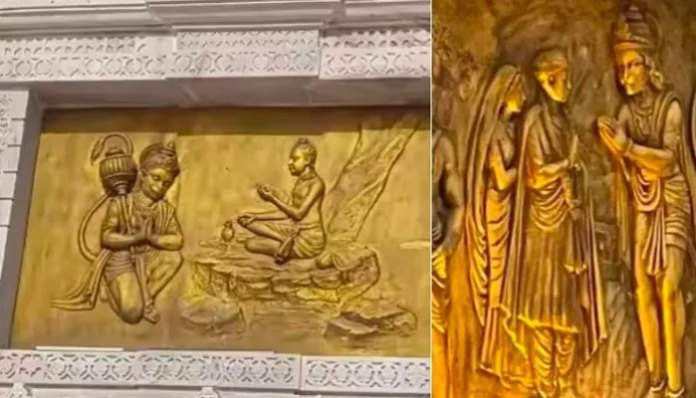Result of organised opposition by Hindus

Salangpur (Gujarat) : On 5th September, the Salangpur Temple controversy ended after the temple administration removed the Deity Hanuman murals in the wee hours. Notably, on 4th September, the Saints of the Swaminarayan sect and other Saints of Hinduism met at Ahmedabad and decided to remove the derogatory murals before sunrise on 5th September. The meeting was organised by Vishva Hindu Parishad (VHP) and took place at Shivanand Ashram. The process to remove the murals started late at night on 4th September. The lights were shut off in the temple premises, and curtains were erected around the murals amid tight Police security. New murals were added to replace the derogatory ones.
On 2nd September, it was reported that a controversy erupted in Gujarat over the murals depicting Deity Hanuman in Salangpur, where the Hindu Deity is portrayed as a servant of Sahajanand Swami. There was a lot of opposition to this on social media, so the Saints of Sanatan Dharma came ahead to protest this display of God as a servant of a Saint. A man was also arrested by the Police after he tried to remove these murals. This case caused controversy in Gujarat. Many Hindu Saints and Mahants publicly expressed their anger, including Morari Bapu, famous Saint Harshad Bharti Bapu, and Mahant Manidhar Bapu of Kabrau Mogal Dham in Kutch.
On 4th September, a meeting of Sadhus, Saints and Hindu leaders was held on the same day in the presence of Gujarat Chief Minister Bhupendra Patel and Home Minister Harsh Sanghvi. In this meeting, it was agreed to settle this controversy at the earliest. However, now this controversy has been completely settled.
Swaminarayan sect is a part of Vedic Sanatan Dharma – Paramananda Swami
In this context, Paramananda Swami had said that Swaminarayan Sampradaya is a part of Vedic Sanatan Dharma itself. All devotees and saints of this sect follow Vedic tradition, worship rituals and practices. Being a part of the Hindu society, the Swaminarayan sect does not want to hurt the sentiments of the society.
Source : Sanatan Prabhat




